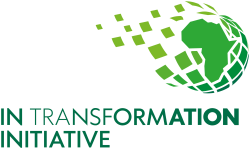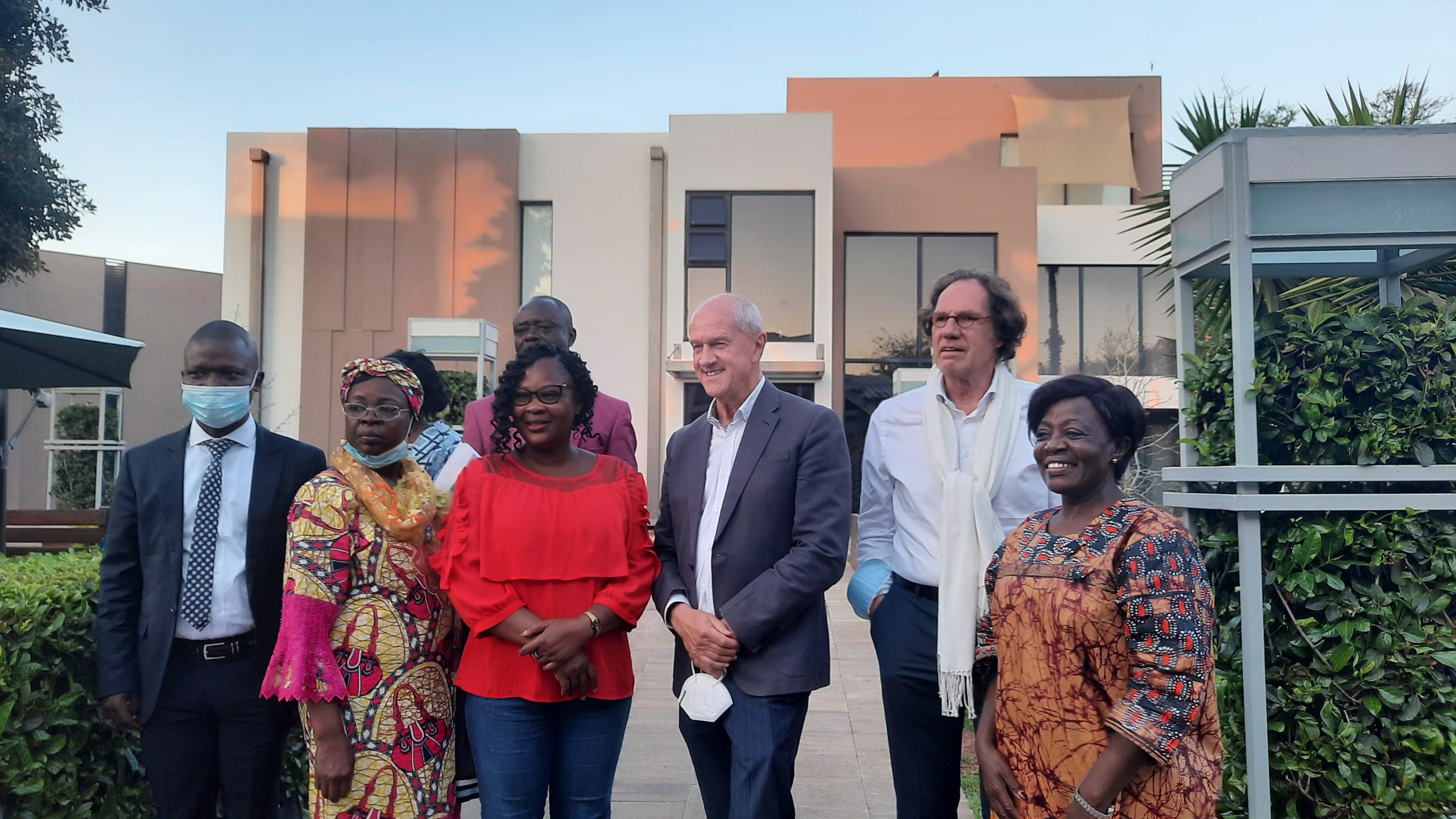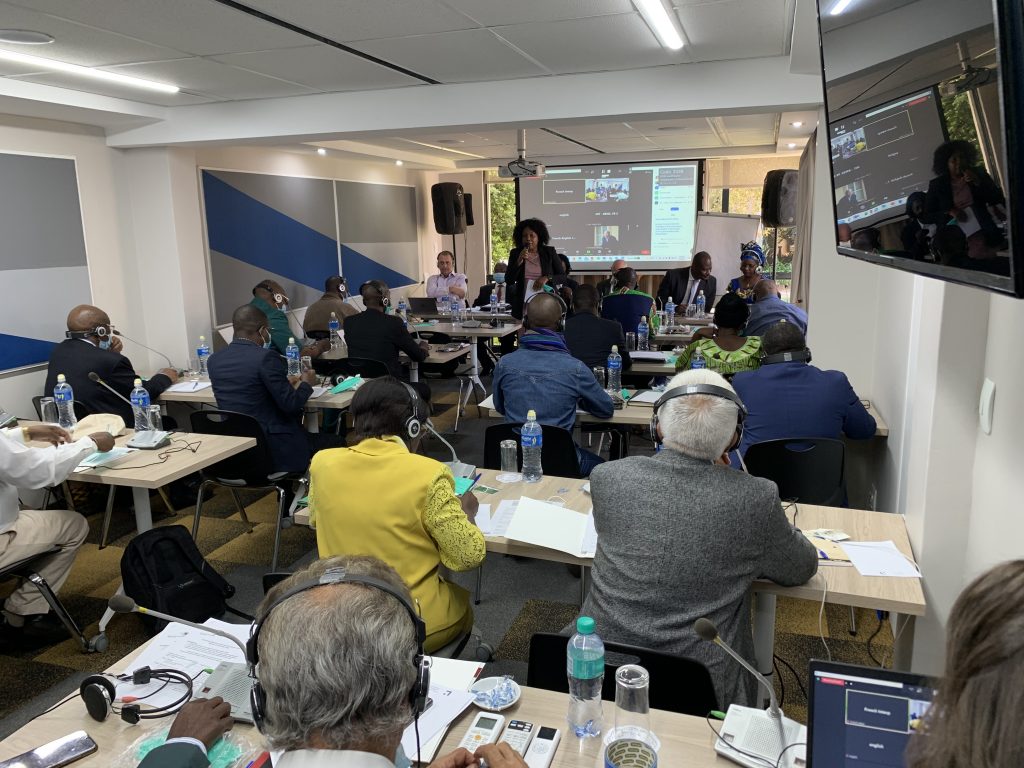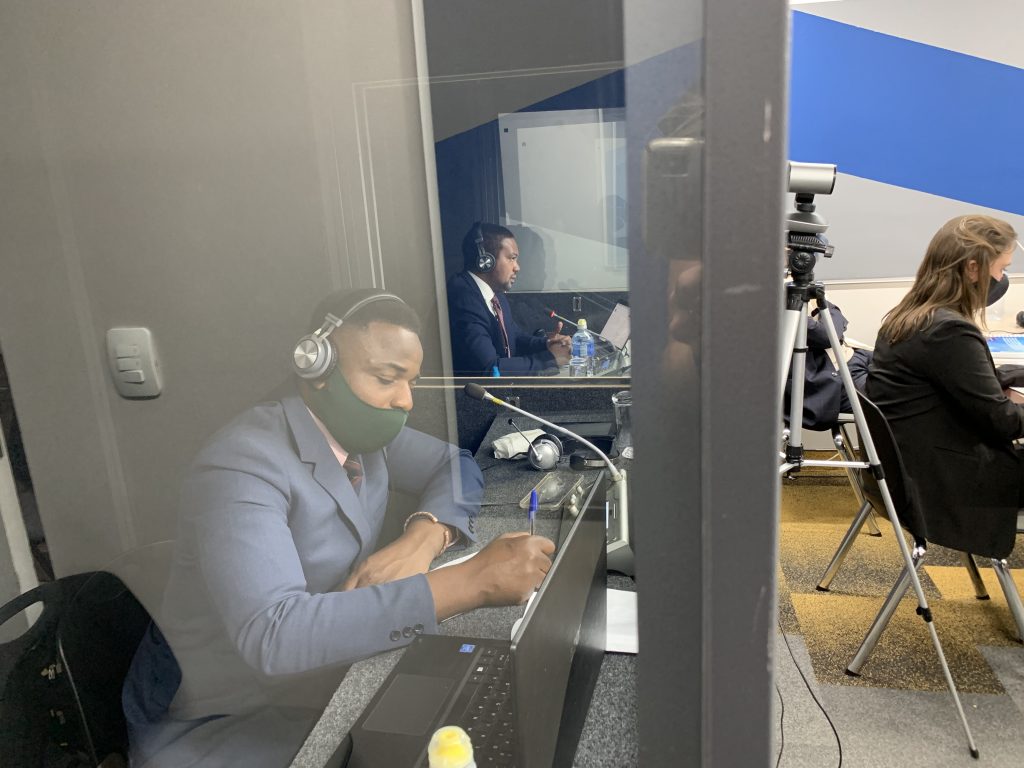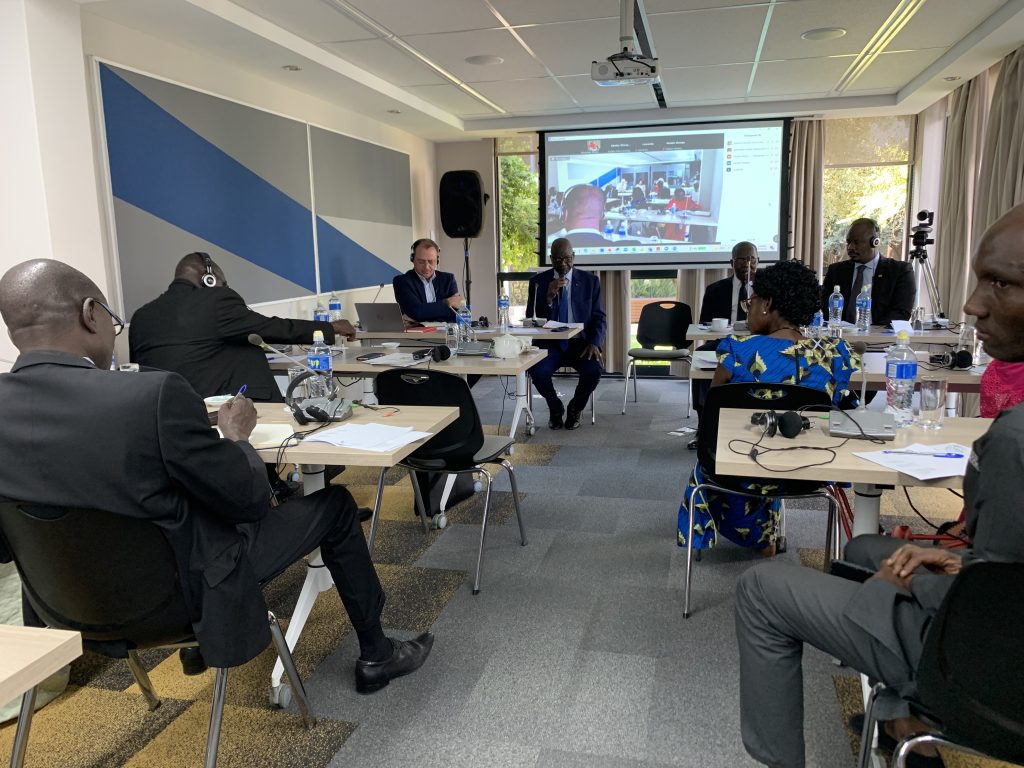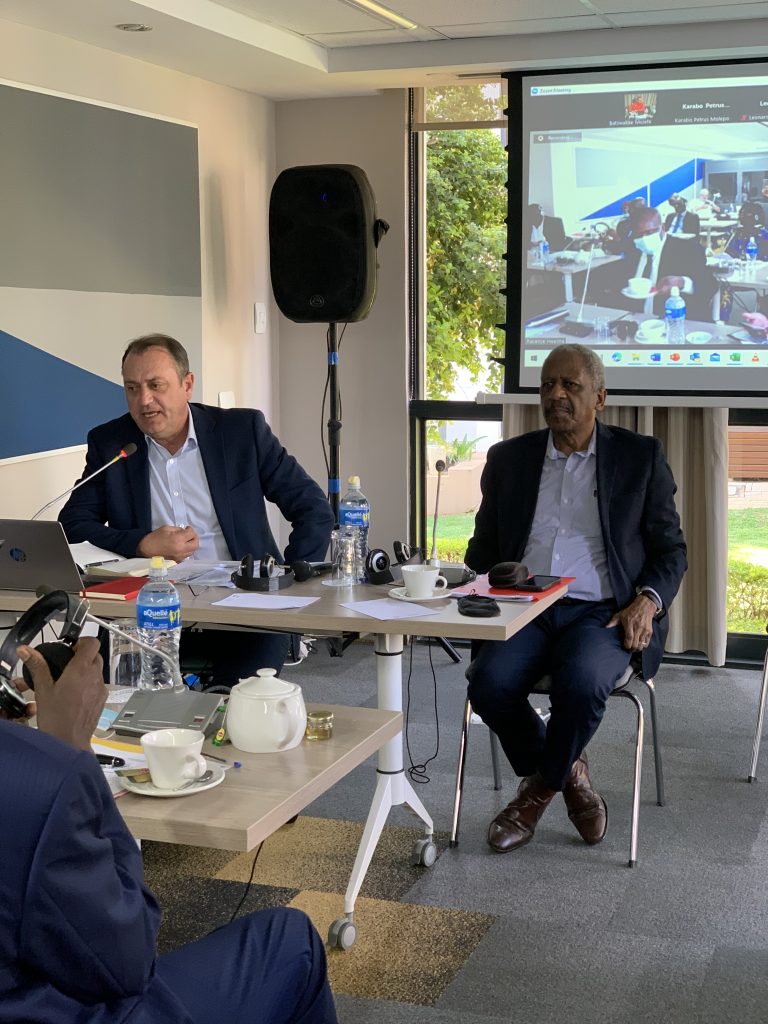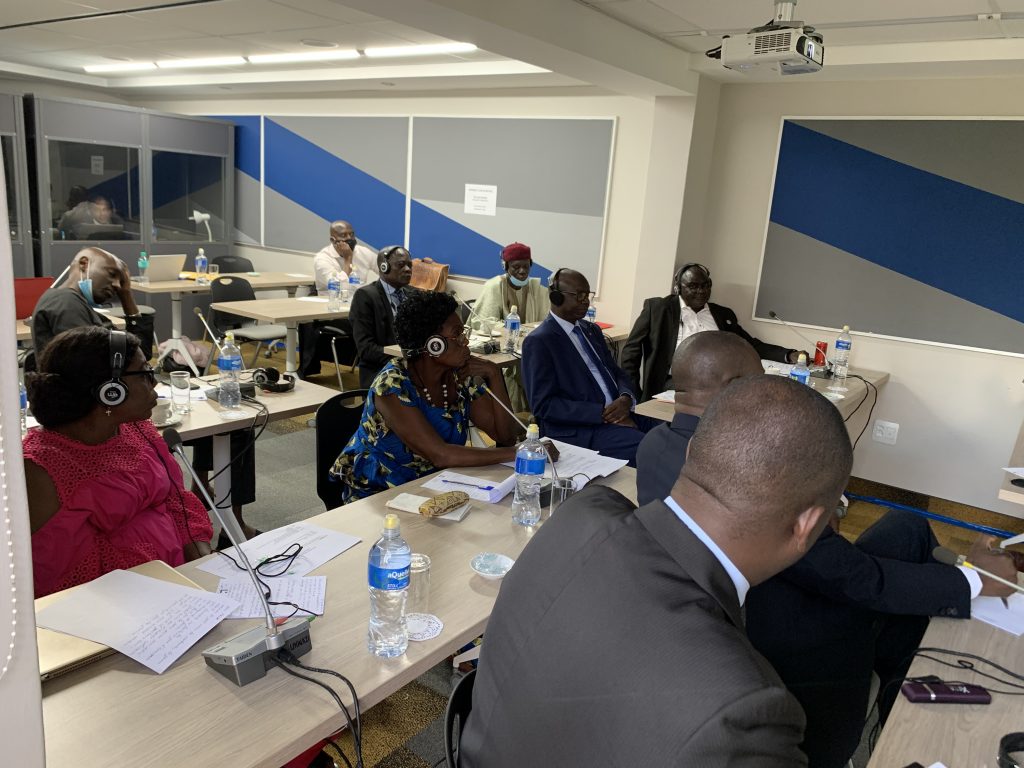The Central African Republic (CAR) has been plagued by a political and insecurity crisis for years, which has weakened state institutions, undermined basic social and economic structures, and created tension between the country’s social and religious communities. Having been plagued by a long history of political coups, the regime change of March of 2013, has seen the country experience an unprecedented spiral of violence.
To stem the violence and bring about stability, the country has since signed eight peace agreements in a space of seven years. Amongst these has been the grassroots consultations, popularly known as the Bangui Forum on National Reconciliation, held from January to February 2015, with a strong set of recommendations being adopted in accordance with the desire of the population. Amongst these recommendations was the institution of a Commission for Truth, Justice, Reconciliation and Reparations (CVJRR) as one of the transitional justice mechanisms. This was further affirmed in the 2018 Political Agreement for Peace and Reconciliation (APPR) signed between the government and 14 armed groups. Further emanating from the recommendations of the Bangui Forum was the revised constitution of 2016. Through this Constitution various state institutions were set up including the National Council of Mediation (CNM). The CNM is mandated with ameliorating various conflicts between the state and citizens in the CAR
South Africa is one of the countries from the African region that has stepped up to the call for support to the CAR’s peace process. As part of this mission is institutional support in a bid to build the capacity of institutions in the CAR that are part of the peace infrastructure to build and sustain peace. Support to the transitional justice aspect in the CAR, notably the capacity building of the CVJRR is thus a major focus of the ITI including capacity support of the CNM, advisory support to DDDR and Security Sector functions. It is considering this that ITI and the Institute for Justice and Reconciliation (IJR) hosted the 11 Commissioners of the CVJRR on a week-long learning visit to South Africa from 13–17 September in Pretoria. The Commissioners were also accompanied by senior representatives from the AU and ECCAS – both bodies being the guarantors of the peace process in the CAR. Following from the visit of the CVJRR Commissioners, ITI subsequently hosted in South Africa, an eight-member delegation of the CNM which was led by the Mediator of the Republic, Honourable Laurent Ngon-Baba.
The specific goals of the learning visit of the CVJRR were to support the efforts of the CVJRR towards the building of a strategy and operational framework. Further to this were the objectives of sharing insights and lessons from South Africa’s experience that can help to enrich CAR’s transitional justice process and situating the work of the CVJRR within an understanding of the African Union’s (AU) framework for transitional justice and the benchmarks for peace in the CAR and the ECCAS region.
The visit drew lessons on the four pillars that underpin the CVJRR, notably Truth, Justice, Reparations and Reconciliation. The content of the visit also included sessions on thematic areas from the South African experience, such as archiving and research, memorialisation, dealing with vulnerable population groups, managing victims and witness protection, mental health, and psychosocial support, reporting and communications and missing people.
Dr Fanie du Toit, who worked for the Institute of Justice and Reconciliation (IJR) at the time of South Africa’s TRC process facilitated the sessions to the learning visit by the Commission for Truth, Justice, Reconciliation and Justice (CVJRR). He gave an overview of South Africa’s experience and pointed to some lessons that CAR’s CVJRR can learn from, notably the need for documentation, consultation, acknowledgment of the truth, realistic promises that are made with integrity, and for the CVJRR to be an independent oversight mechanism.
Dr du Toit highlighted how a TRC process has to be realistic in what it can and cannot achieve. Of note he said, it cannot achieve issues like imposing punishment commensurate to the crime; ensuring remorse from perpetrators; ensuring that victims are reconciled with perpetrators; and addressing all aspects of the past. He explained that a commission can however be incisive in breaking the silence on the past; counter the denial of violations; provide a basis for a common memory; provide a safe space where victims can engage their feelings and bring communities, institutions, and systems under moral scrutiny.
On the first day of the visit the South African Ambassador to the CAR, Ambassador Ramalebana reiterated South Africa’s support, noting how intertwined the peace and prosperity in the CAR is to that of the rest of the continent including that of South Africa. Ambassador Matias Bertino Matondo, the Special Representative of the Chairperson of the AU Head of the AU Mission for CAR expressed his gratitude, noting that the resolution of conflict is a core priority at the continental level and necessary for integration.
In the ensuing days, various themes were explored. These included a presentation on the AU Transitional Justice Policy (AUTJP), by Professor Tim Murithi from the IJR; and a presentation on Archiving and Research, led by Verne Harris, an archivist at the Nelson Mandela Foundation. Lessons from the South African experience, on how the issues of Justice, Truth, Reconciliation and Reparations were conceptualized and dealt with, were also discussed, with critical insights from experts from South Africa who were part of the TRC process in South Africa.
Yasmin Sooka, a former TRC Commissioner, offered critical insights on gender considerations for a TRC. She emphasised how critical it is that in each context the focus and structure of a truth commission’s work should be defined through a multi-dimensional analysis which is intersectional, meaning it explores issues of race, gender, ethnicity, legal and political position, regional location, sexuality, religion, caste, or socio-economic class.
To highlight the importance of the political imperatives in a TRC process, the veteran politicians Dr Matthews Phosa and Roelf Meyer highlighted how the experience of South Africa showed that events which produce historical solutions and define the future of nations are not always logical, rational, or even perfect.
They stressed that there is no perfect future in politics and that there is need for win-win solutions that heal and unite opposites in a society. Truth and Reconciliation Commissions, they emphasised, are handy instruments for countries who want to move away from a traumatic past. South Africa’s choice of a TRC rather than Nuremburg trials was incisive as the country sought a process that would support reconciliation rather than deepening divides.
Justice Dumisa Ntsebeza, a former TRC commissioner shared on some the paradoxes on Truth that the TRC was confronted with, with a trade-off being ultimately settled for with regards to the granting of amnesty in exchange of truth telling.
Among the other themes explored were insights on issues ranging from Memorialization, led by Piers Pigou, a Former Member of SA and Timor Leste TRCS; Managing Victims and Witness Protection, presented by Torie Pretorius, a Former Member of the National Prosecution Authority (NPA); Reporting and Communications, by Max Du Preez, newspaper editor and TRC reporter, to Missing People: Tracing and Exhumation of victims of conflicts, presented by Madeleine Fullard, Head of the Missing Persons Unit (and linked to the TRC Unit) in the Department of Justice were tackled.
Further to the above, the emerging attention being accorded to Mental Health and Psychosocial Support in Transitional Justice was highlighted by Friederike Bubenzer from IJR. In her presentation explained the need to prioritise psychosocial support since data shows that for over 35 years, 80% of countries that have come out of conflict return to conflict. Furthermore, data shows that post-traumatic stress in conflict affected societies is more than double than that in non-conflict affected countries. She thus emphasised how dealing with psychosocial issues can be instrumental in breaking cycles of conflict and violence. Operational issues to guide the CVJRR were highlighted through presentations done by Dr Biki S. V. Minyuku, the former TRC CEO, Dr Faizal Randera and Mr Motswane.
While the work of the CVJRR promises to be a daunting task given the weakened capacity of the state, it being under resourced and the shaky peace agreements with the threat of outbreaks of violence, Madame Douzima, the President of the CVJRR, spoke of the way forward, noting that while the Commission was still new, they are committed to ensuring that the work that is required to support the peace process in the CAR will be carried through.
The learning visit by the CNM, which took place from 4 to 8 October 2021, focused on skills for mediation, dialogue and negotiation, with various experts from South Africa sharing their practical experiences on these matters. The delegation from the CNM lamented the cycle of dialogues that they said do not seem to achieve the desired peace, with implementation of the agreements hardly ever being implemented. The experience of South Africa in this regard was incisive for the CNM, who expressed a keen interest in further benefiting from capacity support from South Africa towards dialogue, mediation and negotiation processes that will assist the country achieve lasting peace and stability.
